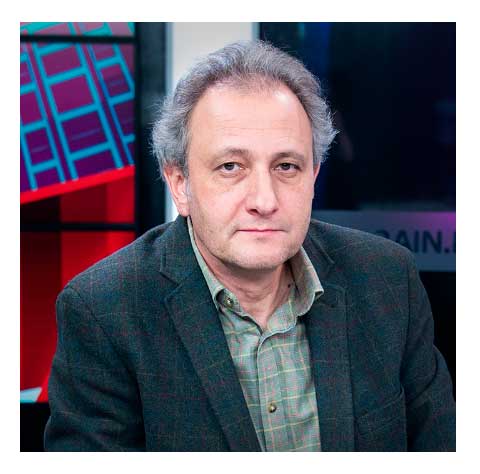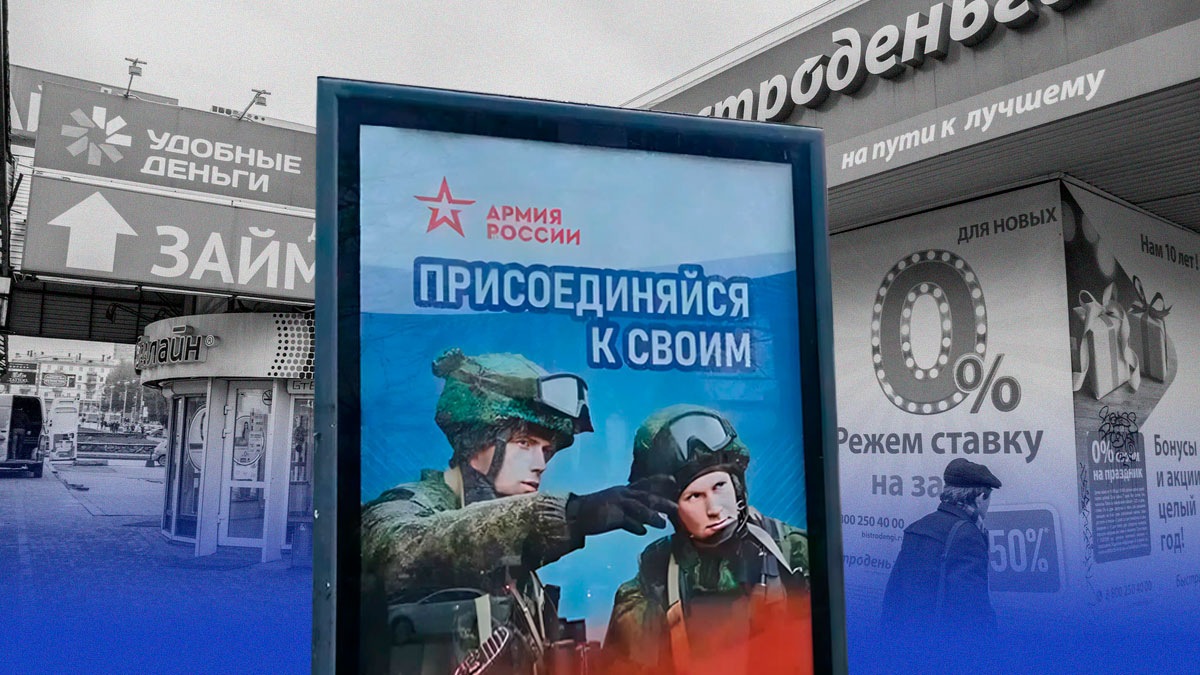 Never in the Putin period of post-Soviet history has the Russian political-economic establishment been so sincere in announcing its goals: it urgently needs money to continue the Special Military Operation. Income must be regular because the end of the "special operation" is not foreseen. This means not just irregular levies from large businesses, whose holdings are also being narrowed by nationalization and subsequent transfer of assets to inefficient state-appointed overseers. Changes are needed in the "stable" tax system.
Never in the Putin period of post-Soviet history has the Russian political-economic establishment been so sincere in announcing its goals: it urgently needs money to continue the Special Military Operation. Income must be regular because the end of the "special operation" is not foreseen. This means not just irregular levies from large businesses, whose holdings are also being narrowed by nationalization and subsequent transfer of assets to inefficient state-appointed overseers. Changes are needed in the "stable" tax system.
Vicious Circles
Raising VAT, lowering the threshold from which it is paid, increasing the recycling fee, now also ideas for a sharp correction of the tax regime for the self-employed and even taxing (what? income that doesn't exist?) the unemployed. In view of the further degradation of the rent-based oil and gas model, which does not bring sufficient income for military and military-social expenses, as well as the collapse of the tax base due to the stagnation of entire industries and productions, money is being squeezed from ordinary taxpayers, but especially from those who are at least somewhat independent of the state — the self-employed, small and medium businesses. This is extremely short-sighted, as these are sectors of everyday services to the population and those businesses that supply food to the tables of Russians.
This means food will remain expensive, and with further state pressure, in less variety. The same goes for services. It's a vicious circle — those who have to pay taxes will become even poorer. Those who feed people will be forced to go bankrupt. Or go underground — it's no wonder that trading businesses sometimes offer consumers a discount for paying for goods and services in cash.

Here's another element of the vicious circle: for example, to support the domestic car manufacturer, which is universally reducing the workweek, they decided to limit the number of car brands used in taxis. Since our top people don't even take a taxi to the bakery, they don't know what the taxi drivers themselves say about it. And many of them don't want to work in cars they don't like, including from the point of view of their personal safety. And then there's the price of gasoline. All this is passed on to the consumer, summed up in the rising cost of taxi services. Everyone is dissatisfied. Taxi drivers complain about life and are capricious: it's no longer the client who chooses them, but they choose the client. Consumers of services in Moscow curse, trying to catch a taxi — either the geolocation doesn't work, or taxi drivers, looking at the price tag, frankly write that it's "too cheap" for them, or the road from the taxi driver to the client takes longer than the actual trip to the desired point. It seems this business, which worked so brilliantly, is also becoming not very profitable — both for the provider and the consumer of services.
Perilous Overconfidence
All this is the vicious circles of the everyday economy. And there are other vicious circles (in another sense of the word) — the higher political-economic class, which is doing well. Except, of course, for endless corruption scandals: as soon as a simple State Duma deputy is touched, 60 real estate objects are found with him. And this is still among the not very rich and influential.
Everything is fine with them, as they report to themselves. Moreover, Putin deliberately prefers "Oreshnik" to Oreshkin. However, it's not obvious that the president's assistant on economics, a graduate of the Higher School of Economics of the best years of this institution, himself didn't end up in a shell, inside which either an aberration of ideas about the real economy occurs, or an interpretation of indicators suitable only for pleasant reports to the first person. And then these people themselves begin to believe their own interpretations. A psychological phenomenon characteristic of economists of the late Soviet era: a mixture of auto-training with cynicism. As they joked in the USSR State Planning Committee about their own public documents: "Just don't forget to change the congress numbers in the report".
These are the vicious circles of the facade economy — the one shown to Brezhnev when he touched the ears of grain in the field, the one shown to Putin in the sterile interiors of some advanced enterprise, innovation, or space center. Right: power is in space. Satisfied with the illusion of absolute control over the situation and the invented within the framework of auto-training complete consolidation of the masses around the Kremlin.
The illusion of control forms perilous overconfidence: reality can be constructed, hence the new profession of "social architect." But constructing reality requires real money. For example, the platform of a large railway station in the regional center collapsed. There is no money for repairs, the platform was replaced with a wooden one, as in the 19th century. It is hardly possible with such visual "agitation" to make people think that everything is fine with them. Money, as was said, is needed for something completely different, people are ready to endure and jump off the train onto a wooden platform as long as necessary for a happy, but now distant, future. So far, the authorities proceed from the fact that there are no limits to patience, anything can be done.
Reality does not need to be constructed — it was already constructed in the previous stage of the vicious circles of Russian history, even turning an entire communism into an "unfinished" construction. It either exists or it doesn't. As long as the country moves on military rails, or rather, sleepers, there will be no development. As long as it's about consuming resources and trying at least somehow to balance the state budget and keep official inflation within single digits.
Angels on the Tip of the Oil Needle
What's happening has become an experiment on living people for yet another correction of the social contract. First — oil and gas prosperity in exchange for political apathy and voting for Putin and his "friends." Then — the imagined greatness of the country in exchange for non-interference in politics and large redistributions of property. Now — some widely announced victory over the West with the return of archaism in a kokoshnik on the head and with a machine gun in hands in exchange for the complete political impotence of the masses and payment by these very masses for the continuation of the Kremlin regime's self-assertion.
The problem is that a social contract should have time limits. It can, of course, be indefinite, but it would be better to formally specify the time. The communists understood this well when they gave themselves 19 years to build communism — from 1961, the new edition of the CPSU program, to 1980. But the Special Military Operation has no boundaries — neither geographical nor temporal. There is no answer to the new cursed Russian question "When will all this end?", and its search is arrogantly-irritably called "excessive expectations." Sub-question: when does the mobilization period for the partially mobilized end? There is no answer either.
That is, there is actually an answer. And it is in what we started the conversation with — in squeezing money from the population for the needs of the front. Once, in one of his letters, Vladimir Nabokov compared another collection of his stories to raisins collected from the bottom of a cookie box. What the Kremlin fisc is collecting now is not even raisins, it's some crumbs that are not enough to continue satisfying the "geopolitical" power insatiability.
The cookies have already been eaten, there are no raisins left, the bottom of the box has worn out. Rosstat can only count the angels that fit on the tip of the oil needle. But there are fewer and fewer of them. Moreover, they are by no means angels. The oil needle, and the ideas about it as a traditionally valuable "magic tablecloth," largely contributed to the start of the greatest anthropological catastrophe, which took place in February 2022. The oil needle transformed into an oil geopolitical game, in which there can be no winners.
And the Russian people are responsible for everything — with their reputation and their pockets. It turns out that you also have to pay the state for your own bad reputation.
* Andrey Kolesnikov is considered a "foreign agent" by the Ministry of Justice of the Russian Federation.
Photo: Anastasia Yakovleva, URA.RU.